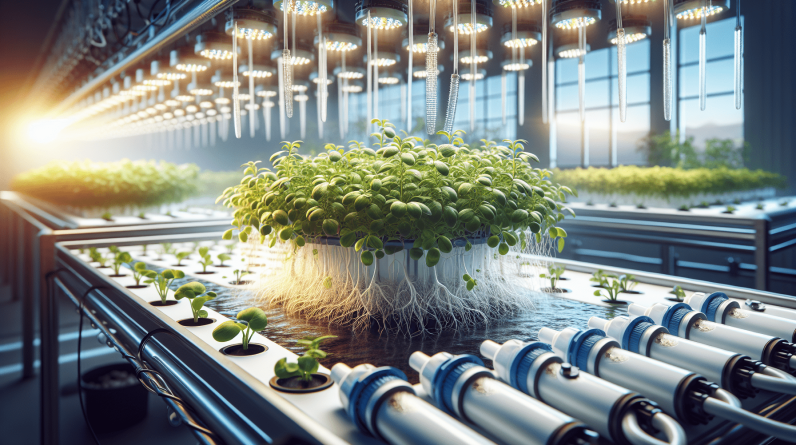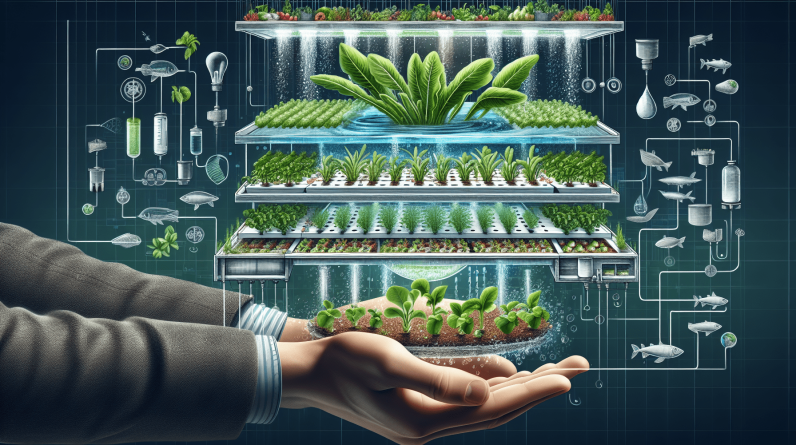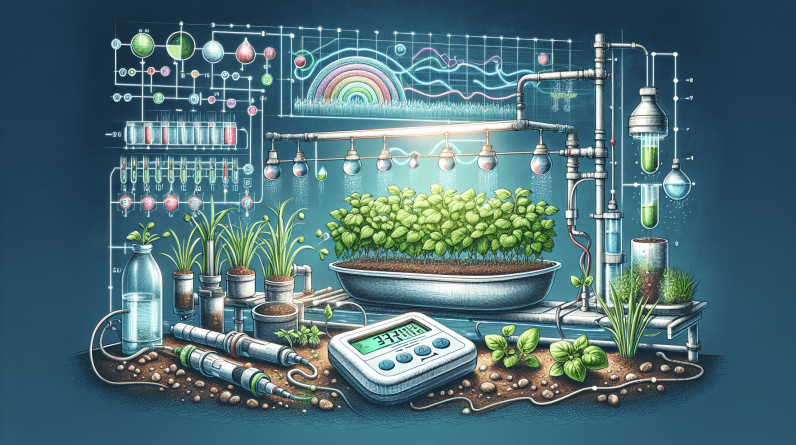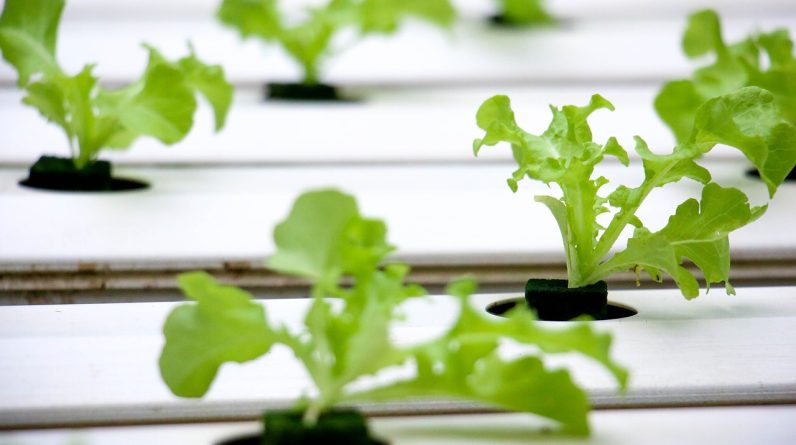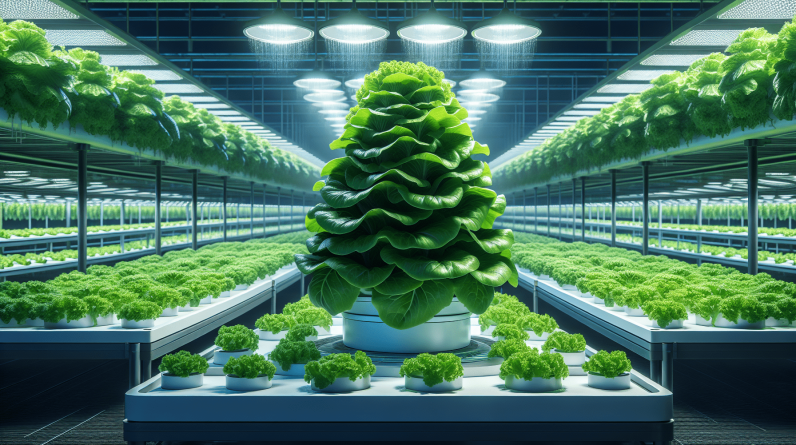
Looking to enhance your gardening skills and produce healthier plants? Consider exploring hydroponic gardening, a method that boosts plant growth by delivering nutrient-rich solutions directly to the roots. With up to 90% less water usage compared to traditional soil gardening, hydroponic systems offer a sustainable approach to cultivating crops all year round, free from soil-borne diseases and pests. By embracing this innovative technique, you can enjoy the benefits of faster plant growth, higher yields, and ultimately, a more efficient and environmentally friendly way to grow fresh, nutritious produce. Dive into the world of hydroponics and experience the wonders of modern gardening firsthand! Have you ever considered trying hydroponic gardening as a way to grow your own fresh, nutritious produce at home? If so, you’re in the right place! In this article, we will explore how you can boost plant growth using nutrient-rich solutions in hydroponic gardening. Hydroponics has gained popularity in recent years due to its efficiency and sustainability, offering a modern approach to cultivation that yields impressive results.

Understanding Hydroponic Gardening
Hydroponic gardening is a method of growing plants without soil. Instead of roots searching for nutrients in the ground, they are provided with a nutrient-rich solution directly, allowing plants to grow faster and healthier. By eliminating the need for soil, hydroponic systems conserve water and reduce the risk of soil-borne diseases, creating an optimal environment for plant growth.
If you’re new to hydroponic gardening, you might be wondering how plants can thrive without traditional soil. The key lies in the nutrient-rich solutions that provide essential elements for plant growth, such as nitrogen, phosphorus, potassium, and micronutrients. These solutions are carefully balanced to mimic the conditions found in soil, ensuring that plants receive everything they need to develop strong roots and lush foliage.
Benefits of Hydroponic Gardening
The benefits of hydroponic gardening are numerous, making it an attractive option for both beginner and experienced gardeners. Here are some of the advantages of using a hydroponic system:
- Faster Growth: Plants grown hydroponically tend to grow faster than those grown in soil, resulting in quicker harvests.
- Higher Yields: With optimal nutrient delivery, hydroponic plants often produce more abundant crops compared to traditional gardening methods.
- Water Conservation: Hydroponic systems use up to 90% less water than soil-based gardening, making them an eco-friendly choice.
- Year-Round Cultivation: Regardless of external weather conditions, hydroponic gardening allows you to grow fresh produce all year round.
- Reduced Risk of Pests and Diseases: Since hydroponic gardens don’t rely on soil, the risk of soil-borne diseases and pests is significantly reduced, leading to healthier plants.
- Enhanced Nutrient Absorption: Plants in hydroponic systems have direct access to nutrients, ensuring efficient absorption and utilization for optimal growth.
As you can see, hydroponic gardening offers a range of benefits that can transform the way you grow plants at home. Whether you’re growing herbs, vegetables, or flowers, a hydroponic system can help you achieve impressive results in your garden.
Nutrient-Rich Solutions for Hydroponic Gardening
One of the key components of successful hydroponic gardening is providing plants with a nutrient-rich solution that meets their specific needs. These solutions contain essential elements that plants require for healthy growth, ensuring that they receive the right balance of nutrients at all stages of development.
When it comes to selecting a nutrient solution for your hydroponic garden, there are several factors to consider, including the type of plants you are growing, their growth stage, and environmental conditions. Different plants have varying nutrient requirements, so it’s essential to choose a solution that is tailored to their needs.
Essential Nutrients for Hydroponic Plants
Plants require a variety of nutrients to thrive, with the primary elements being nitrogen, phosphorus, and potassium (referred to as NPK). These macronutrients are essential for plant growth and play critical roles in photosynthesis, root development, and overall health.
In addition to NPK, plants also need micronutrients such as iron, manganese, zinc, and copper, which are required in smaller quantities but are equally important for plant health. Providing a nutrient solution that supplies all these essential elements ensures that your plants have everything they need to grow strong and healthy.
Types of Nutrient Solutions
There are several types of nutrient solutions available for hydroponic gardening, each formulated to meet specific plant requirements. Some common types of nutrient solutions include:
- General-Purpose Nutrient Solutions: These solutions are suitable for a wide range of plants and provide balanced nutrition for healthy growth.
- Specialized Nutrient Formulas: Some plants have specific nutrient needs at different growth stages. Specialized formulas are designed to meet these requirements, enhancing plant growth and productivity.
- Organic Nutrient Solutions: For those who prefer organic gardening, there are nutrient solutions made from natural ingredients that promote sustainable and eco-friendly cultivation practices.
By choosing the right type of nutrient solution for your hydroponic garden, you can ensure that your plants receive the essential elements they need to thrive. Experimenting with different formulations and observing how your plants respond can help you fine-tune your nutrient management for optimal results.

Designing a Nutrient Delivery System
In hydroponic gardening, the design of your nutrient delivery system plays a crucial role in ensuring that plants receive the right amount of nutrients at the right time. A well-designed system can help optimize nutrient uptake and promote healthy growth, resulting in vibrant, productive plants.
Components of a Nutrient Delivery System
A typical nutrient delivery system for hydroponic gardening consists of several key components that work together to deliver nutrients to plants effectively. These components include:
- Reservoir: The reservoir holds the nutrient solution and provides a storage space for mixing and monitoring nutrient levels.
- Pump: A pump is used to circulate the nutrient solution from the reservoir to the growing area, ensuring that plants receive a consistent supply of nutrients.
- Tubing: Tubing connects the pump to the growing containers, allowing the nutrient solution to flow through the system and reach the plant roots.
- Growing Medium: Depending on the type of hydroponic system you’re using, a growing medium such as clay pellets, rockwool, or perlite provides support for plant roots and stability for the plants.
- Drip Emitters or Sprayers: These components deliver the nutrient solution directly to the plant roots, ensuring efficient absorption and nutrient uptake.
- pH and EC Meters: Monitoring pH levels and electrical conductivity (EC) of the nutrient solution is essential for maintaining optimal nutrient uptake by plants.
Choosing the Right System for Your Plants
When designing a nutrient delivery system for your hydroponic garden, it’s essential to consider the specific needs of your plants and the type of system you’re using. Different hydroponic systems, such as deep water culture, nutrient film technique, and ebb and flow systems, have varying requirements for nutrient delivery.
By selecting the appropriate components and setting up your nutrient delivery system correctly, you can create an efficient and effective setup that promotes plant growth and maximizes yields. Experimenting with different configurations and adjusting nutrient levels based on plant responses can help you fine-tune your system for optimal results.

Monitoring Nutrient Levels and Plant Health
To ensure the success of your hydroponic garden, it’s essential to monitor nutrient levels and plant health regularly. By observing your plants and measuring nutrient concentrations, you can identify any issues early and take corrective action to prevent nutrient deficiencies or imbalances.
Importance of Monitoring Nutrient Levels
Maintaining the right nutrient levels in your hydroponic system is critical for plant growth and productivity. Nutrient deficiencies or excesses can lead to stunted growth, yellowing leaves, poor fruit development, and other issues that can impact plant health.
Tools for Monitoring Nutrient Levels
There are several tools available to help you monitor nutrient levels in your hydroponic garden:
- pH and EC Meters: pH meters measure the acidity or alkalinity of the nutrient solution, while EC meters assess the concentration of dissolved salts. Monitoring these parameters allows you to adjust nutrient levels for optimal plant growth.
- Visual Inspection: Regularly inspecting your plants for signs of stress, discoloration, or nutrient deficiencies can help you identify problems early and take corrective action.
- Nutrient Test Kits: Test kits can provide quick and easy measurements of essential nutrients in your nutrient solution, allowing you to make timely adjustments as needed.
Troubleshooting Nutrient Imbalances
If you notice any signs of nutrient imbalances in your plants, such as yellowing leaves, stunted growth, or wilting, it’s essential to take prompt action to address the issue. Here are some common nutrient imbalances and their potential causes:
- Nitrogen Deficiency: Yellowing leaves, stunted growth, and poor fruit development are signs of nitrogen deficiency, which can be corrected by increasing nitrogen levels in the nutrient solution.
- Phosphorus Deficiency: Purple or dark-colored leaves, slow growth, and weak roots indicate phosphorus deficiency, which can be remedied by adding a phosphorus-rich fertilizer to the nutrient solution.
- Potassium Deficiency: Browning leaf margins, weak stems, and reduced fruit quality are symptoms of potassium deficiency, which can be corrected by adjusting the nutrient solution’s potassium levels.
By monitoring your plants closely and addressing nutrient imbalances promptly, you can promote healthy growth and maximize yields in your hydroponic garden. Regular maintenance and observation are key to ensuring that your plants receive the nutrients they need to thrive.
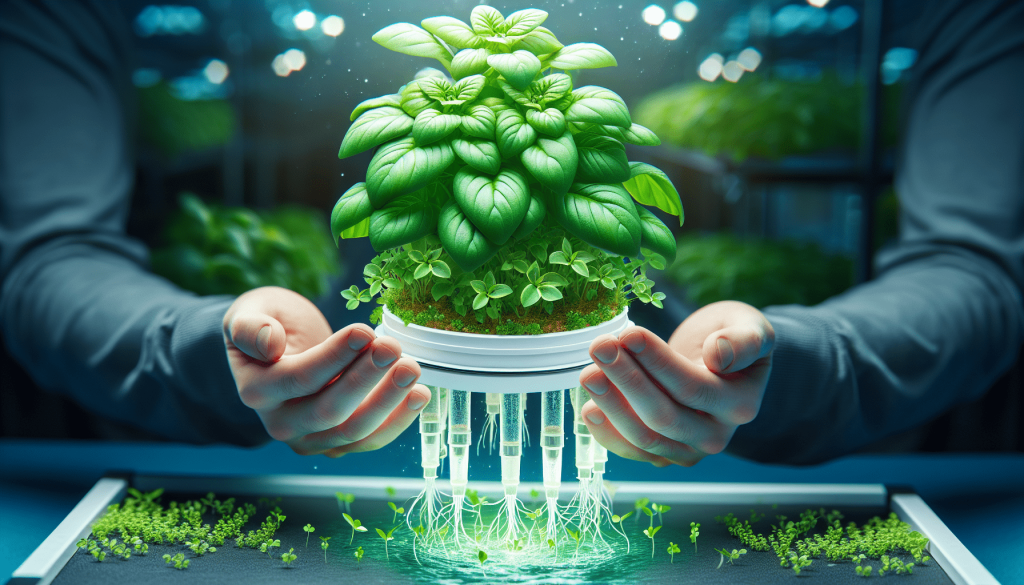
Enhancing Plant Growth with Supplemental Nutrients
In addition to the essential elements found in nutrient solutions, plants may benefit from supplemental nutrients to support specific aspects of growth and development. Supplemental nutrients can help address deficiencies, promote flowering and fruiting, and enhance overall plant health in your hydroponic garden.
Common Supplemental Nutrients for Plants
Some common supplemental nutrients that can benefit plants in a hydroponic system include:
- Calcium and Magnesium: Essential for cell wall formation, calcium and magnesium promote strong and healthy plant structure.
- Iron: Iron is crucial for chlorophyll production and photosynthesis, ensuring that plants have vibrant green leaves and efficient energy capture.
- Zinc: Zinc plays a role in enzyme activity and hormone regulation, supporting various physiological processes in plants.
- Boron: Boron is necessary for flower and fruit development, pollination, and seed production, promoting reproductive growth in plants.
Applying Supplemental Nutrients
Supplemental nutrients can be applied to your hydroponic system through various methods, such as foliar sprays, root drenches, or nutrient solution additives. By incorporating these nutrients into your plant care routine, you can address specific plant needs and enhance growth and productivity.
When using supplemental nutrients, it’s essential to follow recommended application rates and avoid overuse, as excessive nutrient levels can lead to toxicity and negatively impact plant health. Experimenting with different formulations and observing how your plants respond can help you determine the most effective approach for your hydroponic garden.
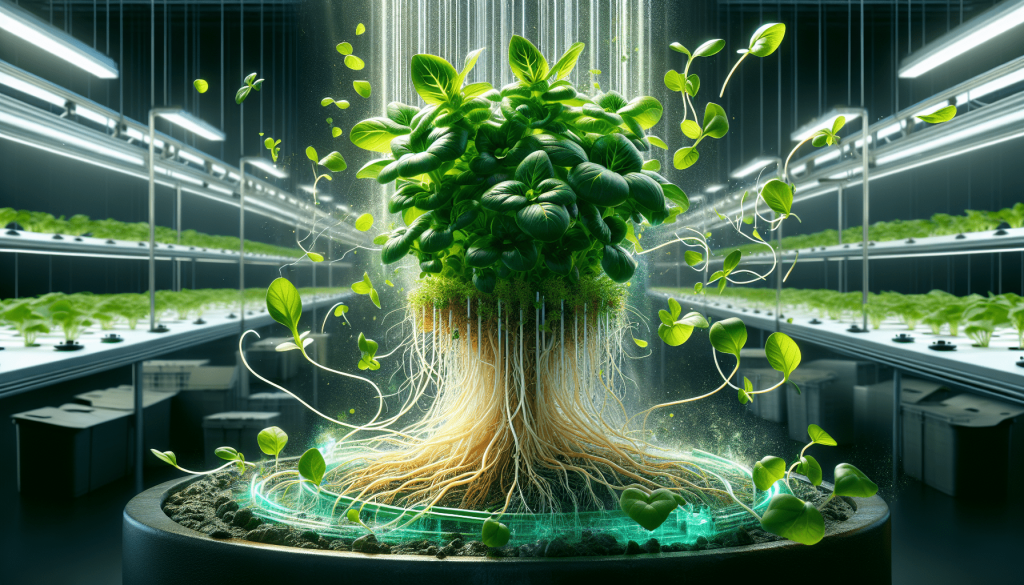
Conclusion
Hydroponic gardening offers a sustainable and efficient way to grow fresh, nutritious plants at home. By providing plants with nutrient-rich solutions and optimizing nutrient delivery systems, you can boost plant growth, increase yields, and cultivate vibrant, healthy crops in your hydroponic garden. By monitoring nutrient levels, troubleshooting imbalances, and applying supplemental nutrients as needed, you can ensure that your plants receive all the essential elements they need to thrive and flourish. Whether you’re a beginner or experienced gardener, hydroponic gardening provides a modern and innovative approach to cultivation that can transform the way you grow plants. So why not give hydroponics a try and experience the benefits of nutrient-rich solutions in your garden today?





